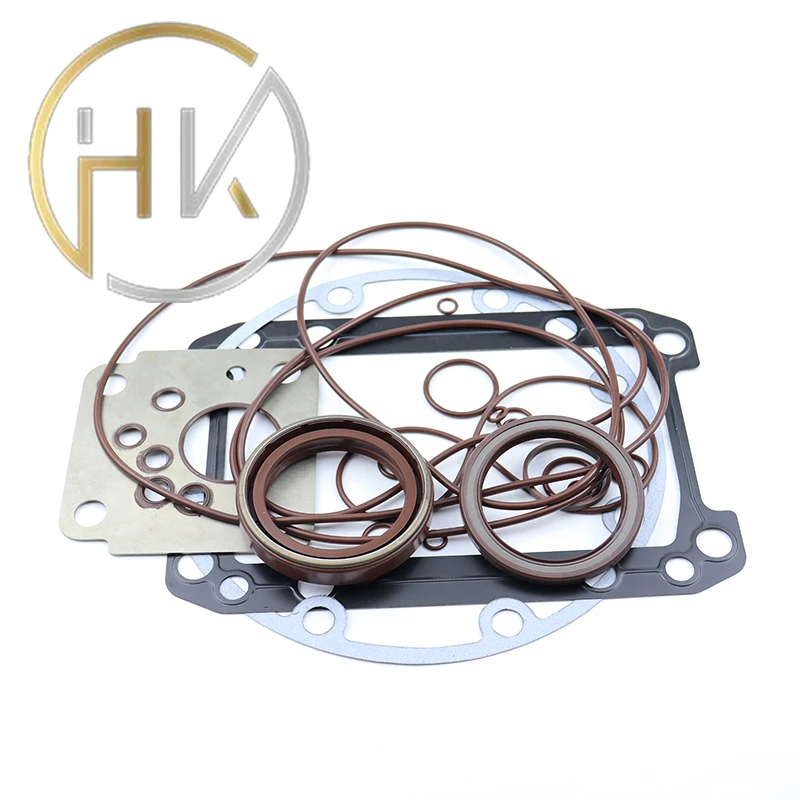Oct . 12, 2024 07:31 Back to list
oil seal for rotating shaft
Oil Seals for Rotating Shafts Ensuring Efficiency and Reliability
Oil seals, also known as rotary seals or shaft seals, are essential components in many mechanical systems where rotating shafts are involved. These seals serve a crucial purpose they prevent the leakage of lubricants and contaminants while maintaining the integrity of the internal environment of machinery. Proper selection and installation of oil seals can greatly enhance the performance and lifespan of rotating equipment.
Oil Seals for Rotating Shafts Ensuring Efficiency and Reliability
Oil seals are predominantly made of materials such as rubber, polyurethane, or silicone, chosen for their ability to withstand various temperatures, pressure, and chemical environments. Among these, Nitrile Rubber (NBR) is one of the most common materials used in oil seals due to its excellent resistance to wear, oil, and heat. In contrast, Fluoroelastomers (FKM) may be used in situations where high temperatures and chemical exposure are anticipated, providing additional durability.
oil seal for rotating shaft

The design of an oil seal typically includes a sealing lip, which contacts the rotating shaft, and a metal case that maintains the shape of the seal and provides structural support. The sealing lip's profile can vary depending on the specific application, and it plays a vital role in creating an effective seal between the moving shaft and the static seal case. Manufacturers often produce oil seals with additional features, such as integrated dust lips or spring mechanisms, to enhance their efficiency in different operating conditions.
Another critical aspect to consider when working with oil seals is the installation process. Incorrect installation can compromise the seal's effectiveness, leading to leakage and ultimately equipment failure. It is essential to ensure that the sealing surface of the shaft is clean and free from blemishes, as any imperfections can disrupt the seal's integrity. Employing appropriate installation techniques, such as using seal drivers and avoiding excessive force, can help in achieving a durable and effective seal.
Regular maintenance and inspection of oil seals are crucial in preventing unexpected breakdowns. Operators in industrial settings should regularly check for signs of wear, such as leakage or discoloration, and replace seals as necessary to maintain optimal performance. Furthermore, being proactive about oil seal replacement can save time and reduce operational costs associated with equipment failures.
In conclusion, oil seals for rotating shafts are vital components that ensure the efficiency and reliability of a wide range of mechanical systems. By preventing lubricant leakage and protecting against external contaminants, they play a significant role in enhancing the performance and lifespan of machinery. Proper material selection, design considerations, and installation practices are critical elements in maximizing the effectiveness of these seals. Regular maintenance also contributes significantly to the longevity of rotating equipment, ensuring that it operates smoothly and efficiently for years to come.
-
Wiper Oil Seal: Our Commitment to Clean Hydraulics
NewsAug.13,2025
-
Hydraulic Oil Seal for Self Discharging Cars
NewsAug.13,2025
-
Hub Oil Seal for Agricultural Tractor Hubs
NewsAug.13,2025
-
Skeleton Oil Seal with NBR Material
NewsAug.13,2025
-
Rotary Lip Seal for High Pressure Applications
NewsAug.13,2025
-
Cylinder Seal Kits Our Legacy of Hydraulic Trust
NewsAug.13,2025
-
Unlocking the Potential of Hydraulic Systems with Essential Sealing Solutions
NewsAug.06,2025
Products categories
















